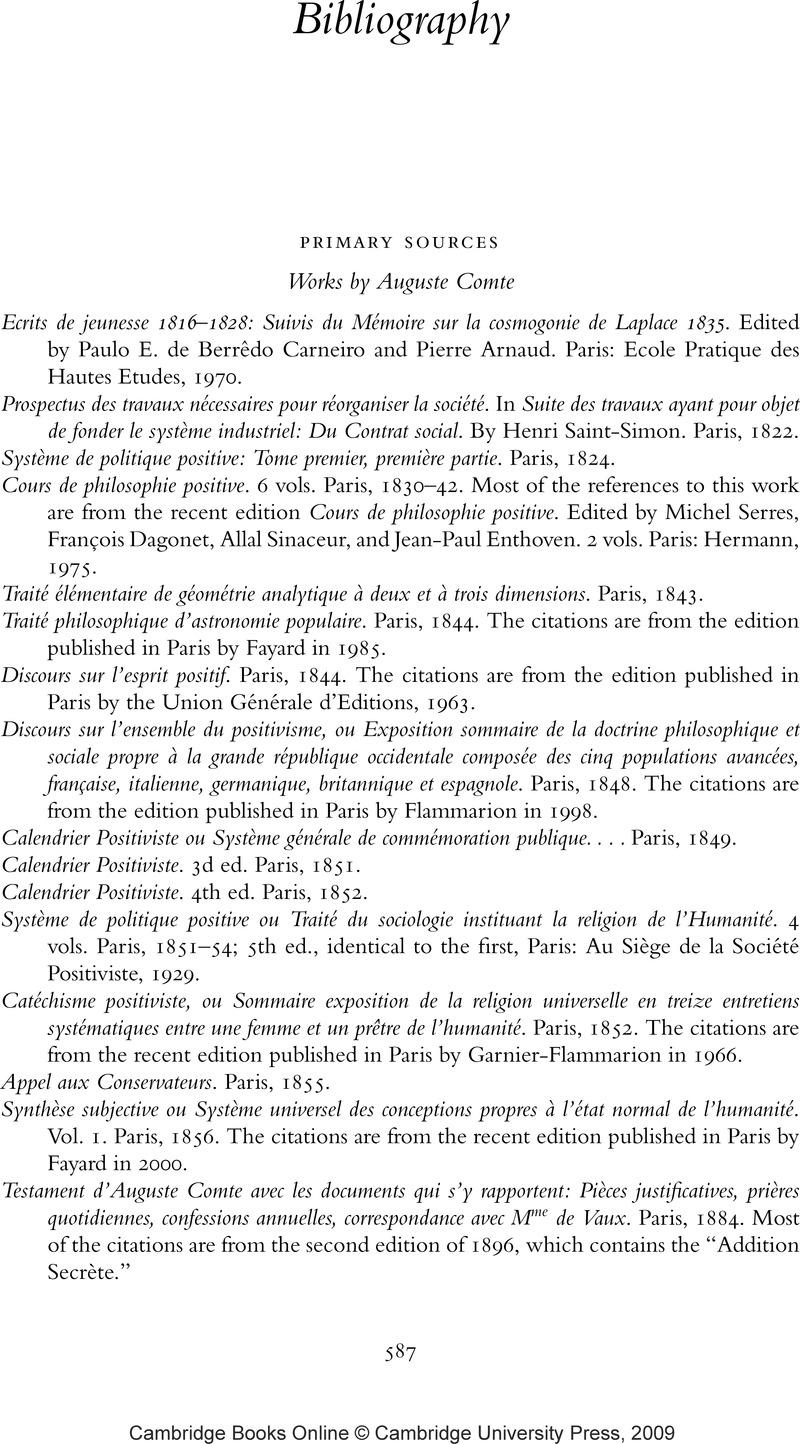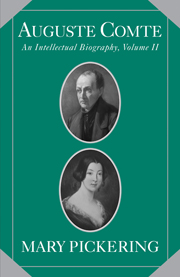Book contents
- Frontmatter
- Contents
- Acknowledgments
- Abbreviations and Notes
- Introduction
- 1 1843–1844: The Battle against the Pedantocracy
- 2 Tensions in Comte's Relationships, 1842–1846
- 3 Clotilde de Vaux and the Initial Encounter with Comte
- 4 The Muse's Tragic End
- 5 Pain and Recognition
- 6 The Revolution of 1848
- 7 Discours sur l'ensemble du positivisme
- 8 Personal and Professional Disappointments
- 9 The Early Development of the Religion of Humanity
- 10 The Development of the Positivist Movement
- Conclusion
- Bibliography
- Index
- References
Bibliography
Published online by Cambridge University Press: 06 January 2010
- Frontmatter
- Contents
- Acknowledgments
- Abbreviations and Notes
- Introduction
- 1 1843–1844: The Battle against the Pedantocracy
- 2 Tensions in Comte's Relationships, 1842–1846
- 3 Clotilde de Vaux and the Initial Encounter with Comte
- 4 The Muse's Tragic End
- 5 Pain and Recognition
- 6 The Revolution of 1848
- 7 Discours sur l'ensemble du positivisme
- 8 Personal and Professional Disappointments
- 9 The Early Development of the Religion of Humanity
- 10 The Development of the Positivist Movement
- Conclusion
- Bibliography
- Index
- References
Summary

- Type
- Chapter
- Information
- Auguste ComteAn Intellectual Biography, pp. 587 - 614Publisher: Cambridge University PressPrint publication year: 2009



